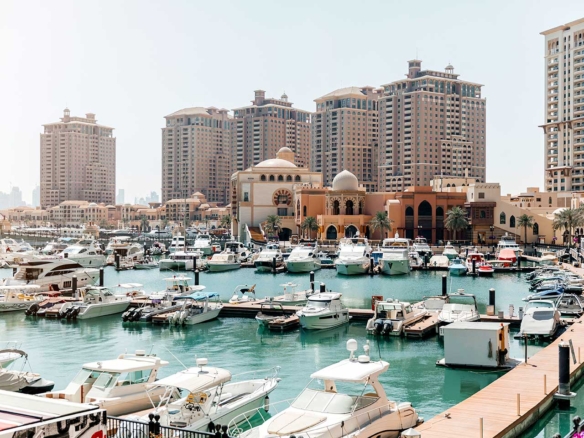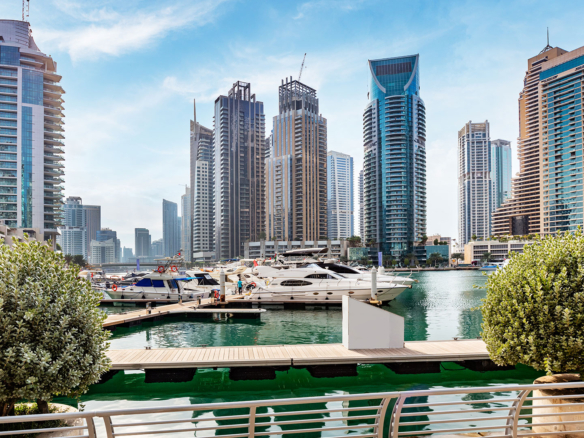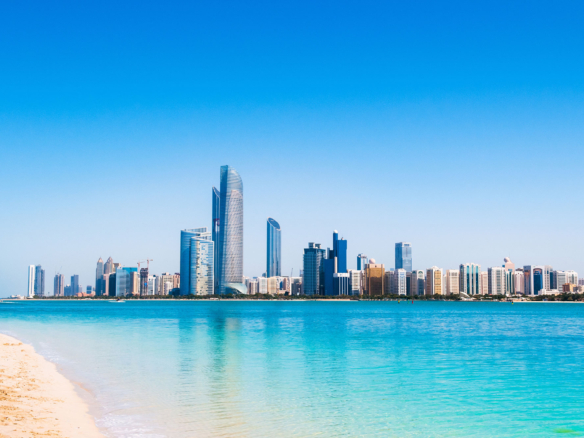The Dubai real estate market demonstrated extraordinary resilience and growth throughout 2024, establishing new benchmarks and reinforcing the emirate’s position as a global investment destination. This comprehensive analysis examines the key trends, performance metrics, and factors that shaped Dubai’s property landscape during this remarkable year.
Market Performance and Transaction Volumes
Dubai’s real estate sector recorded a total of 2.78 million procedures in 2024, the highest in its history, representing a 17% increase compared to 2023. The sector’s exceptional performance was highlighted by 226,000 real estate transactions with a combined value of AED761 billion, a 36% year-over-year growth in volume and 20% rise in value.
According to recent data, Dubai real estate sets all-time record in 2024 with 180,900 transactions worth $142.1 billion, showcasing the market’s unprecedented momentum. The fourth quarter alone was particularly impressive, with total sales transaction values reaching AED116.5 billion, reflecting a 31.1 percent year-on-year increase, with transaction volumes surging 51.8 percent to 46,844 closed deals.
Price Appreciation and Market Dynamics
Property prices across Dubai experienced substantial growth throughout 2024. For Apartments, the average price reached AED 1.4 million, marking a 3.7% increase from November 2024 and a 9% rise compared to December 2023. This growth trajectory reflects sustained demand, particularly in premium locations.
The villa segment showed even more robust performance, with prices continuing their upward trajectory. Land transactions also demonstrated strong investor confidence, with the market recording 850 transactions, a 34.5% increase from November 2024, generating AED 7.8 billion in sales.
Historical context reveals the market’s remarkable recovery and growth. After bottoming at 794 AED/sqft in 2021, prices surged 51.9% by 2024, reaching 1,524 AED/sqft, illustrating the dramatic turnaround in market fortunes.
Off-Plan Market Dominance
The off-plan segment emerged as a dominant force in Dubai’s property market during 2024. 60% of sales driven by off-plan properties highlights the confidence buyers have in future developments. The primary market saw exceptional growth, with transaction volume skyrocketing by 51 percent to 119,800 in 2024, demonstrating a notable rise in buyer confidence and developer engagement.
This trend was further supported by attractive payment plans and new project launches, which drew significant interest from both local and international investors. Off-plan market contributes over 50 percent of transactions in Q4 2024, cementing its role as a key driver of market activity.
Investment Climate and Economic Drivers
Dubai’s appeal as a safe haven for investors remained strong throughout 2024. The Emirate’s reputation as a safe-haven for investors remains solid, bolstered by a 5% increase in population, record-high residential transactions, and robust economic expansion.
Several economic factors contributed to this investment climate. Lower interest rates, along with improved economic conditions and rising incomes, are driving demand for personal loans, and home credit in particular, as noted by the Central Bank of the UAE. This favorable lending environment supported increased buyer activity across all property segments.
Dubai’s real estate growth is driven by a combination of favourable government policies, a thriving economy and increasing global interest from high-net-worth individuals. The government’s strategic initiatives, including visa reforms and residency incentives, played a crucial role in attracting foreign investment.
Technological Integration and Market Evolution
The Dubai property market witnessed significant technological transformation in 2024. The integration of artificial intelligence (AI) and digital platforms is revolutionising how properties are marketed and sold. Modern tools such as virtual tours, 3D floor plans, and AI-driven market analyses became standard practice, enhancing transparency and accessibility in the property purchasing process.
This technological evolution, driven by proptech solutions, is expected to continue shaping the market landscape, making property transactions more efficient and data-driven for both developers and investors.
Market Outlook and Future Prospects
Looking ahead, market forecasts remain optimistic. Dubai Real Estate Market Forecast 2025 predicting 5-8% annual price growth and 7% average rental yields suggests continued strength in the market. The foundation for this positive outlook rests on several pillars: sustained investor confidence, government policy support, and Dubai’s growing reputation as a global business hub.
The hospitality sector also contributed to the overall real estate ecosystem, with the hospitality market achieving a 9% increase in overnight visitors, while hotel occupancy reached 78%, supporting demand for both residential and commercial properties.
Market Segments and Performance
The residential market showed particular strength across all segments. Luxury properties continued to attract significant interest from high-net-worth individuals, while mid-market segments benefited from improved financing conditions and government initiatives.
Investment properties recorded remarkable performance, with 217,000 investments valued at AED526 billion, reflecting impressive growth rates of 38% and 27% in number and value respectively. This demonstrates the market’s appeal not just to end-users but also to investors seeking portfolio diversification and strong returns.
Conclusion
The Dubai real estate market in 2024 exceeded all expectations, setting multiple records and establishing new benchmarks for performance. The combination of strategic government policies, favorable economic conditions, technological advancement, and sustained investor confidence created an environment conducive to exceptional growth





Join The Discussion